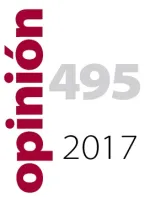Turkey, One Year After

*This article was previously published in FEUTURE VOICES and El País
One year ago, on the night of July 15, Turkey came face to face with a coup attempt, the fifth in its history and the first one to fail. With 249 people killed and official buildings -including the parliament – bombed, it was a traumatic episode in the country’s history. The resistance of the institutions and the people against the coup attempt could have acted as a lever to consolidate Turkish democracy and unite the country. But this is not happening.
It is time to take stock of not only the night of July 15 but, above all, of where Turkey stands now, a year onwards. One initial conclusion is that many questions remain unresolved. The Turkish government accuses the cleric Fethullah Gülen, a former ally of President Erdoğan and since 1999 self-exiled in the United States, of being the architect of the coup, and his followers to having acted as the executing arm. Those accused, of course, deny it. Conspiracy theories are multiplying. The absence of a commonly held narrative is not helping heal the wounds.
Not only the attempted coup, but also the measures taken by the government ever since have been traumatic for many. There are tens of thousands of people in prison and at least 150,000 who have lost their jobs in the aftermath of the coup. Newspapers, schools and universities have been shut down. The spectrum of the purge that started out against the Gülenist circles has exceeded this scope. The latest episode has been the arrest of several human rights activists, including the head of Amnesty International Turkey. The country's reputation is suffering in the international arena. These days I recall a conversation I had in Istanbul only four days after the coup attempt. One person, close to the government, tried to reassure me that the purges would be fast, focused and fair. What would this person say to me now?
These measures have contributed to the polarization of the Turkish society, but this is not a novelty. Before July 15, the Turkish society was already divided between those who admire and those who hate President Erdoğan, among those who want to strengthen his power and those who fear an authoritarian drift. The division has hardened even more, as we saw in the April 16 constitutional referendum this year. It is worth mentioning, though, that there are some interesting evolutions: there is a critical current underlying the AKP, and the party risks losing support in urban areas.
This year also reminded us that the Turkish society remains dynamic, plural and resilient. The society resisted a coup, and also wants to preserve democracy and the rule of law. The success of the ‘Justice March’, headed by the opposition leader Kemal Kılıçdaroğlu, is a clear example to this.
Yet here is one of the key components of this balance: while President Erdoğan is more powerful than he was one year ago, he has also become more vulnerable. On the night of July 15, a military squadron was sent to the hotel where he and his family were staying, either to arrest or even eliminate him.
His enemies have also multiplied after the post-coup purges, and the constitutional referendum was everything but reassuring for him. He did not gain the resounding victory he had hoped for. He feels threatened, surrounds himself with the faithful, distrusts systematically, and acts with utmost diligence, as any gesture of his could be interpreted as a sign of weakness.
So far, the good course of the economy has played a key role in securing the political power of Erdoğan and his party. Many people do not vote for ideology only, but because they see the AKP and Erdoğan as energizers of Turkey’s economy, promoters of public investment and job creation. After the failed coup, a major fear was that consumption would fall and investors would move away. However, the Turkish economy has weathered the crisis and in recent days the government proudly displays the growth figures and the positive trend of the Istanbul stock exchange.
One thing that has been affected by this process is foreign policy. The coup attempt has damaged relations between Turkey and its Western partners, partly because Erdoğan has not felt sufficiently supported by these allies, and partly because these allies consider the measures adopted by the Turkish government to be disproportionate or even counterproductive. Even so, the train crash has been avoided, at least for now.
Taking stock means assessing what went wrong and what went right, so as to improve the situation. In that vein, it would be good for Ankara to start questioning why the defeat of the coup attempt a year ago is too often perceived as a triumph of Erdoğan himself rather than a victory for Turkish democracy.
D.L.: B-8439-2012